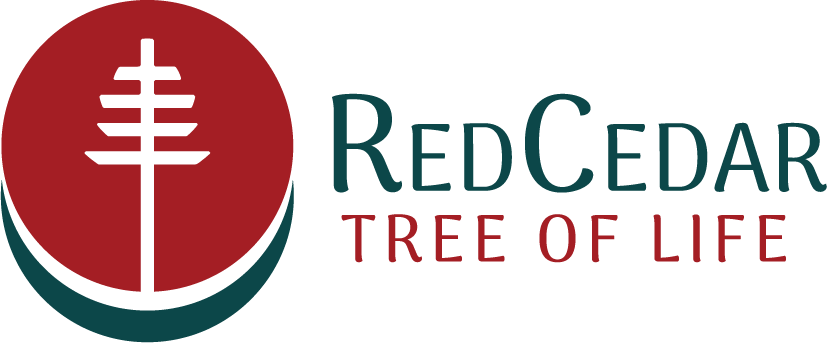Frequently Asked Questions (FAQs):
What services does RedCedar Tree of Life offer? RedCedar Tree of Life provides comprehensive support through three main service categories:
End-of-Life Doula Services: Personalized support ensuring dignity and comfort during the final chapters of life.
Pre-Planning Services: Proactive guidance to navigate end-of-life decisions, ensuring your wishes are established and respected.
Healthcare Navigation Services: Expert navigation through the complexities of the healthcare system to maximize benefits and optimize care.
What is a Death Doula? A Death Doula provides non-medical support to individuals and families during the end of life. Our Doulas offer emotional support, assist in creating meaningful end-of-life plans, facilitate family communication, and ensure that the dying process is as peaceful and dignified as possible.
When should I consider engaging with your services? Our services can be beneficial at any stage of a serious illness, from initial diagnosis to advanced care needs. Engaging early with services like pre-planning and healthcare navigation can be particularly effective in reducing stress and enhancing quality of life throughout the healthcare journey.
How do Death Doulas work with medical professionals? While Death Doulas do not provide medical care, they work alongside your healthcare team to ensure that all aspects of care align with your personal wishes and medical needs. They serve as advocates and communicators, helping to bridge the gap between medical professionals and family members.
Are your services covered by insurance? Currently, Death Doula services are not typically covered by standard health insurance policies in Canada. However, we provide detailed invoices for services rendered that clients may submit to insurance providers for potential reimbursement under health spending or flexible health accounts.
How can I start services with RedCedar Tree of Life? To begin, contact us via our website or phone to schedule an initial consultation. This meeting allows us to understand your needs, discuss how our services can support you, and outline the next steps tailored to your specific circumstances.
What makes RedCedar Tree of Life different from other service providers? Our founder, Michelle Kotowski, brings over three decades of experience in healthcare and human services, offering a unique blend of empathy, expertise, and advocacy. Our approach is holistic, client-centered, and deeply respectful of each individual’s journey, making our services uniquely supportive and compassionate.
What are the key decisions I need to consider for end-of-life care? As you approach the end of life, several critical choices need to be made. These include selecting the type of medical care you prefer, deciding where you wish to receive care, and determining who should make decisions on your behalf if you are unable to do so.
What is curative treatment and hospice palliative care? Curative Treatment: This involves medical interventions aimed at curing your illness or extending your life. Hospice Palliative Care: This type of care focuses on alleviating pain and other symptoms of a disease. It includes coordination of your medical care and offers emotional and spiritual support to you and your loved ones.
How can I prepare for end-of-life care? It’s advisable to plan ahead by deciding on your healthcare preferences, such as whether to receive CPR or other life-sustaining treatments. Documenting these decisions in an advance care plan is crucial. This plan should include your medical care wishes and appoint a substitute decision-maker who can legally make decisions for you. You should also consider organ donation as part of your planning.
Can I choose between different types of medical care? Yes, you can choose from various types of medical care. Some people opt for aggressive treatments to prolong life (curative treatment), while others might prefer care that focuses on comfort and quality of life (hospice palliative care). It’s also possible to receive a combination of both.
Where can I receive care? End-of-life care can be provided in several locations, including hospitals, at home, or in specialized facilities such as nursing homes or hospice centers. The choice depends on your personal preferences, medical needs, and the resources available in your area.
How should I communicate my end-of-life decisions? Discussing end-of-life options with loved ones can be challenging but is essential. Utilize opportunities such as family meetings, estate planning, or after medical appointments to discuss your wishes. Ensuring your decisions are documented in writing is also vital.
What should I discuss with my doctor? When diagnosed with a life-threatening illness, it’s important to understand your medical options and the implications of each choice. Engage in open discussions with your doctor about your illness, treatment options, and what to expect, ensuring your medical and personal needs guide these conversations.
How do I handle organ donation? If you wish to donate your organs, inform your doctor and indicate this choice on an organ donor card or your driver’s license. Discuss this decision with your family, as they may need to provide consent after your death.
What is involved in estate planning? Estate planning is crucial to ensure your affairs are managed according to your wishes after you pass away. It includes writing a will, appointing an executor, and making arrangements for minor children or incapacitated adults. Consulting with an attorney or financial planner is recommended to navigate these decisions effectively.
What should I know about the dying process? The dying process involves several physical and emotional changes, such as increased fatigue, breathing irregularities, and shifts in appetite and temperature. Understanding these signs can prepare you and your loved ones for what to expect. Hospice palliative care teams can provide guidance and support during this time.
How can I manage pain and other symptoms? Effective pain and symptom management are crucial for maintaining comfort during the dying process. Discuss pain relief options with your doctor, and consider consulting a pain management specialist if necessary.
